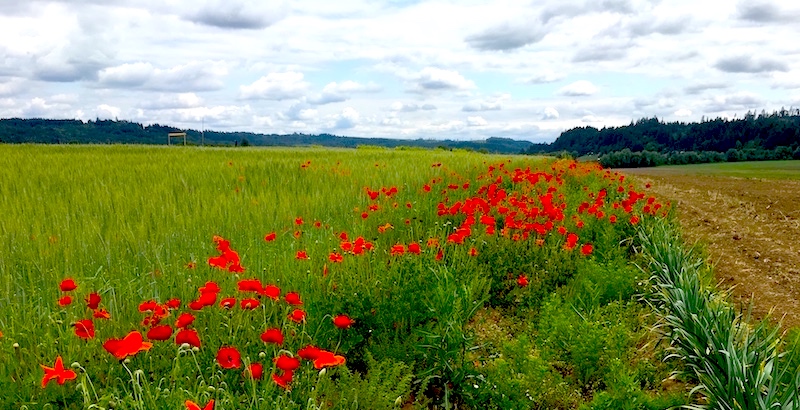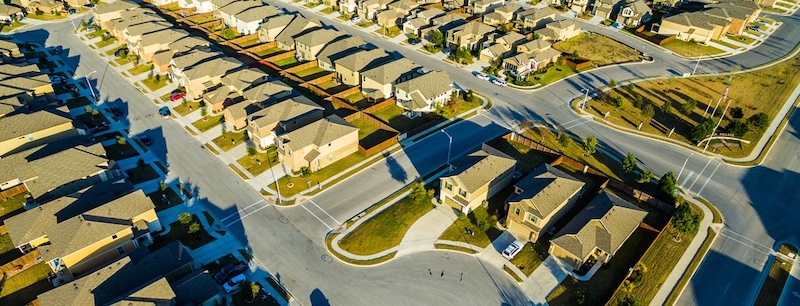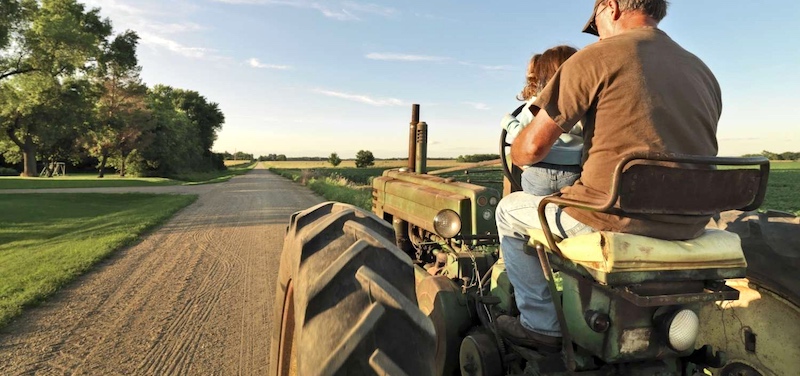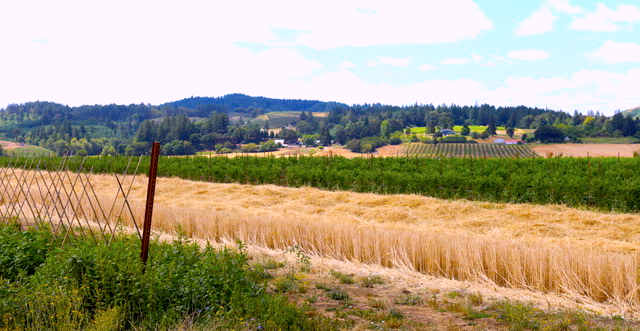
Legislative Report: Wins, Losses and Draws
The 82nd Oregon Legislature adjourned its 35-day session, as the official phrase goes, "sine die"—without a future date designated for resumption—with a notable lack of the drama that marred last year's gathering. In other words, no Republican walkouts that ground to a halt any significant action on some critical issues, and with at least a nod to compromise, though some of those may spell disaster for Oregon's farmers and agricultural lands.
 Housing: Loss for Farmers and Agricultural Lands, Win for Developers
Housing: Loss for Farmers and Agricultural Lands, Win for Developers
Perhaps most notable was Oregon Governor Tina Kotek's vow to get a housing bill passed to ostensibly ease the statewide problem of high costs for housing and low vacancy rates, along with a vague nod toward "doing something" about its unhoused citizens.
This so-called "smart housing policy," SB 1537, included a provision that would allow cities to override long-established land use laws and processes, expanding their urban growth boundaries (UGBs) by at least 75 or 150 net residential acres each, depending on population size. Not surprisingly, this could lead to municipalities being influenced by greedy developers eager to enrich themselves at the expense of our rich agricultural lands near population centers, which was one of the main thrusts of establishing UGBs in the first place.
The catch—And you knew there was one, right?—is that in reality only 30 percent of this new housing is required to be "affordable," putting the lie to proponents' claims it would magically solve the so-called housing crisis. Plus, as anyone who's watched big apartment buildings and condos sprouting up in their neighborhoods, the affordable housing requirements can be reduced or waived for any number of reasons.
In a press release from 1,000 Friends of Oregon, "the idea to sprawl outside urban growth boundaries, including into the wildland-urban interface, where wildfire risk is higher and development patterns worsen environmental impacts, should never have stuck. But we know why it did: It’s a giveaway to homebuilders."
This was despite advocates identifying 3,000 acres of land suitable for housing within urban growth boundaries, and their insistence that those sites should be the first priority for development.
Not only is this a big loss for Oregonians' ability to directly challenge actions taken by our representatives, it's a blow to our access to food grown close to where we live, as well as to the income of small farm families and their ability to access the rich agricultural land near market centers. And what about the climate? It will suffer, too, since farmers will have to transport goods farther to get to those markets, and scraping away carbon-sequestering topsoil and replacing it with sprawling developments is the wrong way to go.
In what seemed like a good thing, near the end of the session an unpopular section of the bill that forbade cities from putting before the voters any changes to the existing UGB was expunged. And that's a good thing, right?
Well, yes, but in a sneak attack right at the end of the session, the expunged text was "stuffed" into a different bill and passed. A very, very bad thing (see below).
 Sneak Attack: Land Use Exemption in Hillsboro
Sneak Attack: Land Use Exemption in Hillsboro
The Hillsboro area of North Plains, similar to the rest of the Willamette Valley, has some of the richest agricultural soils in the state. A last-minute measure, HB 4026, was passed at the very end of the session, a so-called "gut and stuff" maneuver in which the text of an existing bill is replaced with different language, often to serve a special interest group.
In this case, the text was removed from the Governor's so-called "housing" bill that removes the option for a community send a land use decision by a city to the voters via a referendum (see above). Stripping public participation from the process is rarely a good sign, and it was clearly in direct response to a ballot measure that the people of North Plains worked to bring to the upcoming May ballot over a deeply unpopular land grab decision by their city council.
Because of this new law, the community's ballot measure is not going to be able to move forward, putting valuable farmland in jeopardy again. In response, the people of North Plains are mounting a local effort to fight it and allow their ballot measure to stand. To sign a petition supporting the ballot initiative, go to Friends of North Plains Smart Growth.
UPDATE: Washington County Circuit Court, judge Andrew Erwin, granted a temporary restraining order on March 21 that allows the North Plains referendum, Measure 34-327, to remain on the printed ballot this May. This means although North Plains citizens will be able to vote on the measure in May, they will need to win their court case in order to have the votes legally count.
 Preserving Agricultural Lands
Preserving Agricultural Lands
A bill requesting $10.8 million for the Oregon Agricultural Heritage Program (OAHP) for the next biennium, HB 4060, survived by the skin of its teeth at the end of the session. OAHP has four components: technical assistance, succession planning, conservation management plans, and easements. It is crucial not only for the preservation of Oregon's farmland, but the incorporation of environmental stewardship into working lands management.
It is one of many tools the state should be using to address the farmland crisis our country, and Oregon especially, is facing today. From 2017 to 2022 the nation lost two percent of its farmland to development and other uses, but shockingly in Oregon we doubled that national trend to lose four percent of our farmland acreage. Allocating funds to current landowners through easements will permanently preserve land for farm use, make it immune to UGB expansions and zoning changes, as well as making it available at the agricultural value (a lower price) for the next buyer.
Sadly, the budget request died in the Ways and Means Committee, but the program was saved at the last minute with $6 million allocated in the final budget bill signed by the governor.
 Dead: Funding for Locally Grown Food for Oregonians on Food Assistance
Dead: Funding for Locally Grown Food for Oregonians on Food Assistance
The Double Up Food Bucks Program is a SNAP (formerly known as food stamps) matching program for fresh fruits and vegetables at farmers markets, farmstands, CSAs and select grocery stores. Established in 2009 and currently available at 75 markets across the state, it provides additional resources to SNAP users to purchase fruits and vegetables, puts more money in the community food system, and makes healthy food more available across the state.
In the 2023 session the legislature did not fulfill the full request from the program and, in order to qualify for federal matching funds, the Farmers Market Fund—with allies like Friends of Family Farmers, Oregon Hunger Taskforce, Partners for a Hunger Free Oregon and the American Heart Association—requested an additional allocation of $1 million from the state. Shockingly, even with overwhelming support from stakeholders and advocates, the request was not included in the final budget.
Go to the Farmers Market Fund website to find out how to support this valuable program in their applications to foundations and other donors to cover the gap in their budget.